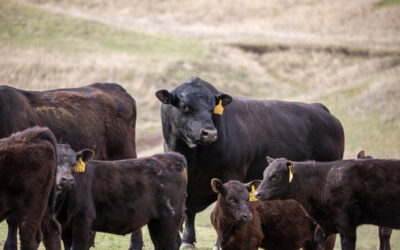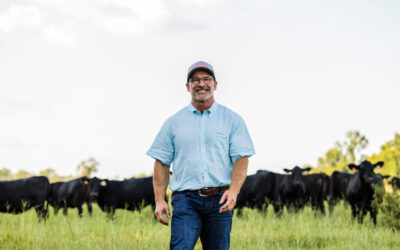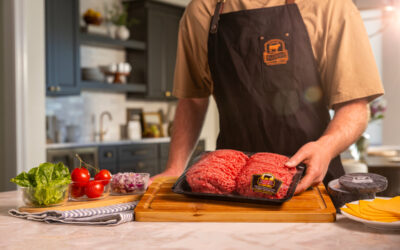
Natural, organic – What’s the diff?
 All natural. Certified organic. Non-hormone treated cattle.
All natural. Certified organic. Non-hormone treated cattle.
I take for granted that I generally know what all of those terms mean because of the business I’m in. But if they still confuse you, then this is the post for you. (And you’re not alone. Our team is always fielding producer and consumer questions about them.)
Myth: In beef production, the terms “natural” and “organic” are interchangeable.
Fact: They’re not the same. Natural is a marketing claim, which can vary by brand or company, while organic is more rigorous and is certified by USDA.
To be honest I can’t keep all the natural programs and requirements straight. They vary a lot. But I can tell you that Certified Angus Beef(R) brand Natural is what we call a “never, ever” program—cattle never receive antibiotics or added hormones. They’re also fed a 100% vegetarian diet and are minimally processed, without added ingredients. (Information on producing cattle for CAB’s natural program is just a click away.)
Here’s how the government defines natural: “As required by USDA, meat, poultry, and egg products labeled as ‘natural’ must be minimally processed and contain no artificial ingredients. However, the natural label does not include any standards regarding farm practices and only applies to processing of meat and egg products.”
That leaves it pretty wide open, huh?
Organic, however, has a pretty specific definition. Cattle must meet those “never, ever” standards I mention above, plus receive certified organic feed. They must follow specific production protocols, which are too numerous to list here, but can be accessed via the USDA website.
Then that brings us to Non-Hormone Treated Cattle (NHTC), which are just what they sound like: cattle that have never received implants. Beef from those cattle is primarily destined for export to the European Union.
I could write on and on about different nuances and things to consider when discussing natural vs. organic, but Tom Troxel, University of Arkansas, does a good job of plowing that ground in his piece: Natural and Organic Beef.
Reading that will do you much more good than me trying to reinvent the wording.
If you still have questions after that, please post them. Maybe I know the answer. Or maybe I don’t, but I bet I can find it for you.
May your bottom line be filled with black ink,
Miranda
You may also like
From Decline to Dominance
Initiated from a simple yet visionary idea, and pursued through the grit and tenacity of Angus breeders seeking a better future for the breed and Association members, it’s no accident that Certified Angus Beef is where it is today.
Smitty’s Service on CAB Board
Lamb continues to find himself struck by just how far-reaching the Angus breed has become. The brand’s growing demand and rising prime carcasses left a strong impression. He hopes everyone recognizes the vital connection built between consumers and Angus producers. Humbled by the opportunity to serve, Lamb reflects on his time as chairman with gratitude.
Success, Despite Challenges
Today’s market is complex and competitive. The collective effort of stakeholders across the supply chain positions Certified Angus Beef to meet the record demand for premium beef moving forward. Signals across the beef industry are clear and Angus farmers and ranchers seeking high-quality genetics that deliver premium beef are producing a product in high demand.



